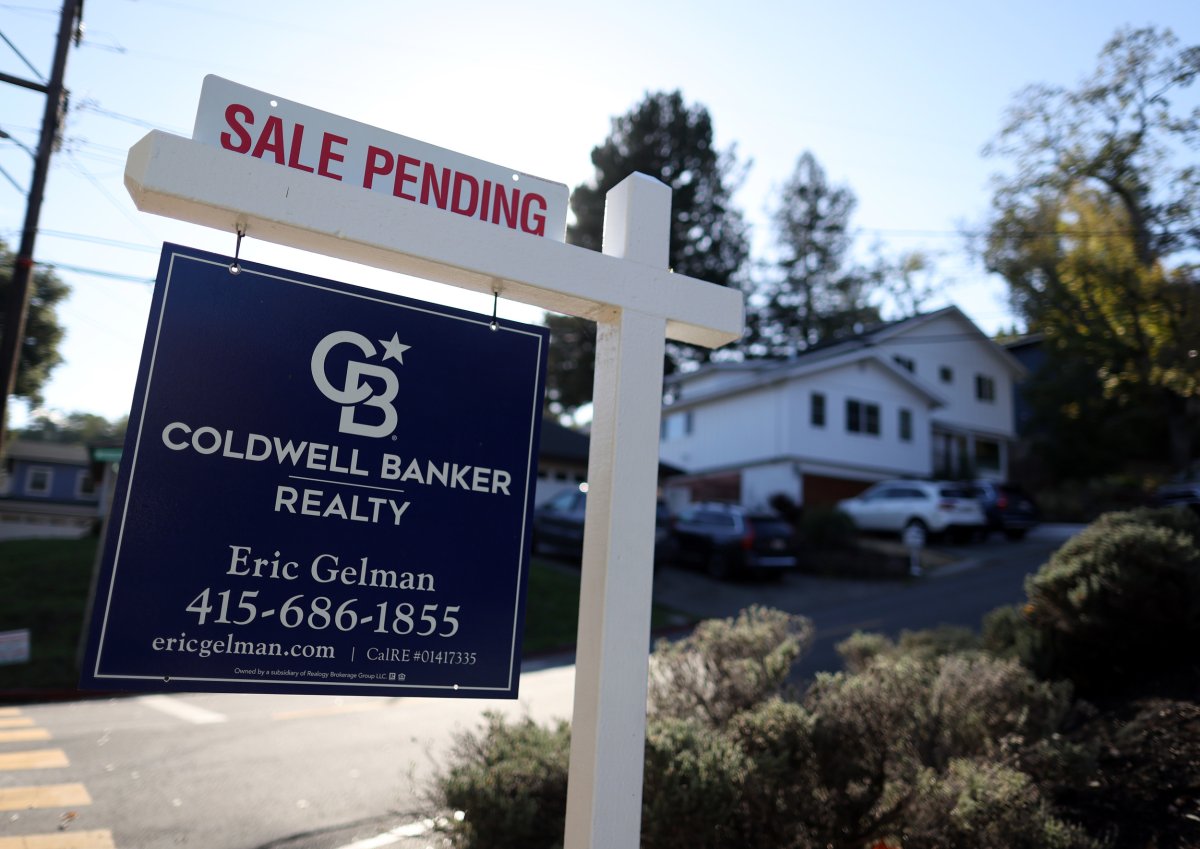A strong U.S. economy will be a boon for the housing market, Mortgage Bankers Association's (MBA) chief economist said on Thursday, as it will buoy demand and as inflation continues to fall, mortgage rates will decline as well making home loans more affordable for buyers.
The U.S. economy accelerated at a faster-than-expected clip in the fourth quarter of 2023 at 3.3 percent, the Commerce Department's Bureau of Economic Analysis revealed on Thursday.
Meanwhile, the personal consumption expenditures (PCE) price index—the Federal Reserve's preferred measurement of inflation's progress—jumped by 1.7 percent during the quarter. Core PCE, which excludes the often volatile food and energy prices, increased by 2 percent.
These dynamics bode well for the housing market that has been struggling under the weight of record-high mortgage rates, sparked in part by the Fed's hiking of rate at the most aggressive clip since the 1980s to fight soaring inflation.
The Fed's funds rate currently sits at 5.25 to 5.5 percent—the highest they have been in two decades—and policymakers have signaled that they will slash rates should inflation come down to their 2 percent target.
But an economy that may avoid a recession as inflation moderates without the Fed's tight monetary policy doing too much damage to the jobs market would help the housing sector.
"Stronger economic growth will benefit the housing market, keeping demand robust," Mike Fratantoni, MBA's chief economist, said in a statement shared with Newsweek. "Moreover, today's report also showed further reductions in inflation, which will enable the Federal Reserve to cut rates later this year—as they have been hinting."
Mortgage rates ticked up slightly for the week ending January 25, Freddie Mac said on Thursday, with the 30-year fixed rate averaging 6.69 percent.
"The 30-year fixed-rate has remained within a very narrow range over the last month, settling in at 6.69% this week," Sam Khater, Freddie Mac's chief economist, said in a statement.
Rates look to have stabilized, Khater suggested, encouraging buyers to jump off the fence.
"Despite persistent inventory challenges, we anticipate a busier spring homebuying season than 2023, with home prices continuing to increase at a steady pace," he said.
A slowdown in rates could have a negative impact on home buyers, some analysts say.
A decline in the cost of home loans would encourage more purchases, and this increase in demand will spark competition at a time when there is a limited supply of homes for sale.
More buyers who can afford mortgages entering the market will push up prices, analysts from Goldman Sachs said this week.
The investment bank's experts project prices to soar by 5 percent in 2024, a marked revision from their earlier expectation of a 2 percent jump. That trend will continue through next year when prices are forecast to increase by nearly 4 percent, which is also a change from a previously estimated increase of close to 3 percent.
Amid the price increases, Goldman Sachs analysts anticipate that rates will fall to 6.63 percent for the year. This drop in rates from the near 8 percent highs of November 2023, will make house loans more affordable, sparking more demand for properties.
"We have very low inventory of houses for sale, which is generally supportive of prices, along with generally stable demand that is coming from things like household formation," Roger Ashworth, senior strategist on the structured credit team at Goldman Sachs, said this week.
On Thursday, new home sales climbed up by 8 percent in December, according to government data, while prices declined to two-year lows. The fall in prices and a rise in sales was partly due to builders offering inducements to buyers, according to Yelena Maleyev, a senior economist at KPMG.
"Builders have pivoted to building smaller homes and offering more discounts and concessions, such as mortgage rate buydowns, to bring in buyers sidelined by rising mortgage rates," she said in a note shared with Newsweek.
But the data from the U.S. Census Bureau also showed that inventory of newly built homes fell last month after going up the previous months. There were 453,000 houses available for sale at the end of December, which accounts for 8.2 months' worth of supply.
This constituted a 3.5 percent decline from the same time a year ago, Maleyev pointed out.
The lack of inventory also comes at a time when the used homes market has struggled. Sales are down in that segment amid a lack of supply of homes as sellers are reluctant to give up their low rates for new home loans hovering in the mid-6 percent.
This lack of supply will be key to how prices shake out and the outlook for the year is not encouraging.
"If mortgage rates fall below 6 [percent] in 2024, more owners will feel comfortable listing their homes for sale, alleviating some of the shortages, but not enough to close the supply gap," Maleyev said.

Uncommon Knowledge
Newsweek is committed to challenging conventional wisdom and finding connections in the search for common ground.
Newsweek is committed to challenging conventional wisdom and finding connections in the search for common ground.
About the writer
Omar Mohammed is a Newsweek reporter based in the Greater Boston area. His focus is reporting on the Economy and ... Read more





